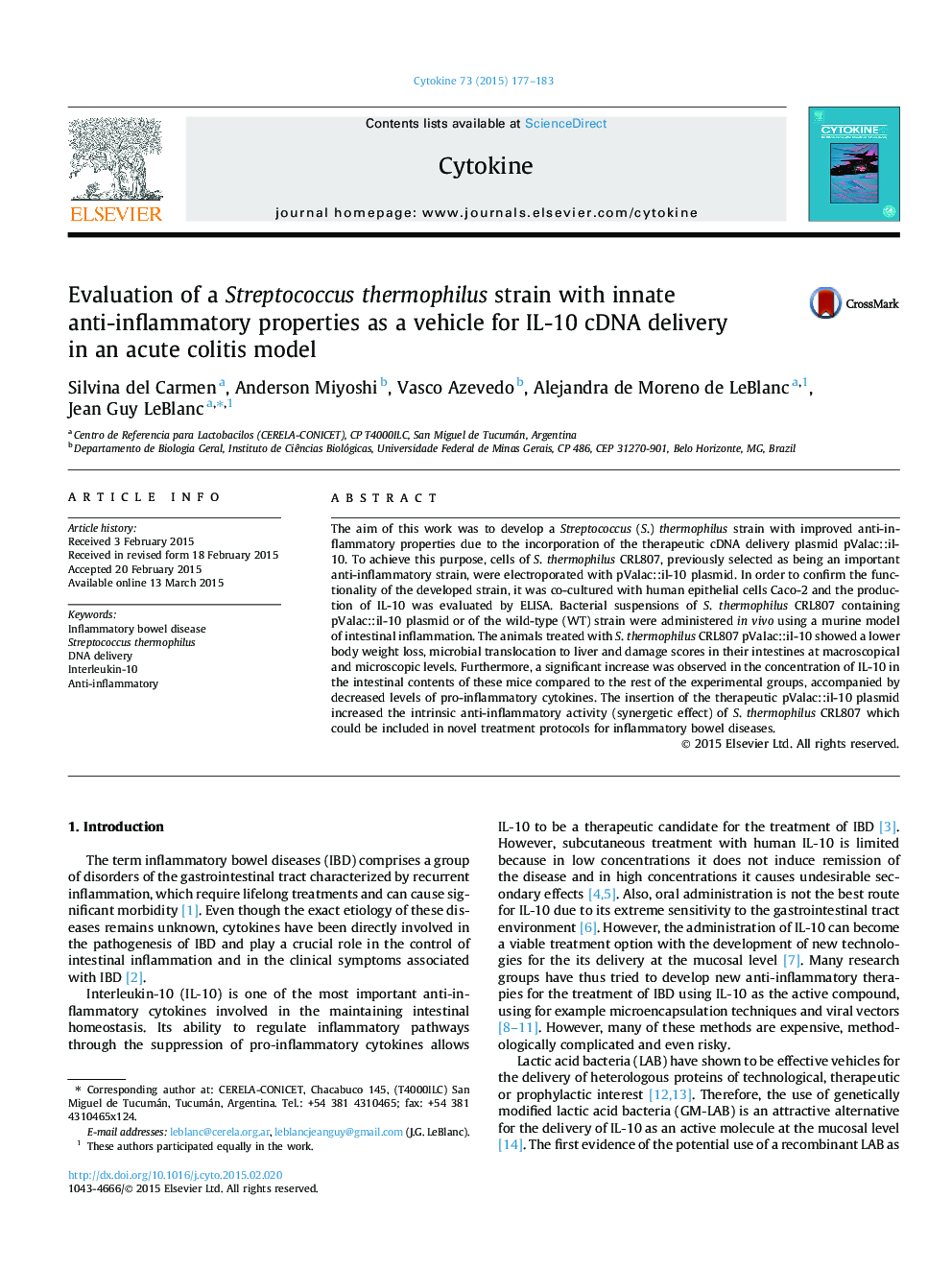| Article ID | Journal | Published Year | Pages | File Type |
|---|---|---|---|---|
| 5896991 | Cytokine | 2015 | 7 Pages |
â¢S. thermophilus CRL807 was transformed with the cDNA vector pValac::il-10.â¢S. thermophilus pValac was able to induce IL-10 production in human cell cultures.â¢S. thermophilus pValac::il-10 prevented colitis in mice.â¢pValac::il-10 increased the anti-inflammatory potential of S. thermophilus CRL807.
The aim of this work was to develop a Streptococcus (S.) thermophilus strain with improved anti-inflammatory properties due to the incorporation of the therapeutic cDNA delivery plasmid pValac::il-10. To achieve this purpose, cells of S. thermophilus CRL807, previously selected as being an important anti-inflammatory strain, were electroporated with pValac::il-10 plasmid. In order to confirm the functionality of the developed strain, it was co-cultured with human epithelial cells Caco-2 and the production of IL-10 was evaluated by ELISA. Bacterial suspensions of S. thermophilus CRL807 containing pValac::il-10 plasmid or of the wild-type (WT) strain were administered in vivo using a murine model of intestinal inflammation. The animals treated with S. thermophilus CRL807 pValac::il-10 showed a lower body weight loss, microbial translocation to liver and damage scores in their intestines at macroscopical and microscopic levels. Furthermore, a significant increase was observed in the concentration of IL-10 in the intestinal contents of these mice compared to the rest of the experimental groups, accompanied by decreased levels of pro-inflammatory cytokines. The insertion of the therapeutic pValac::il-10 plasmid increased the intrinsic anti-inflammatory activity (synergetic effect) of S. thermophilus CRL807 which could be included in novel treatment protocols for inflammatory bowel diseases.
